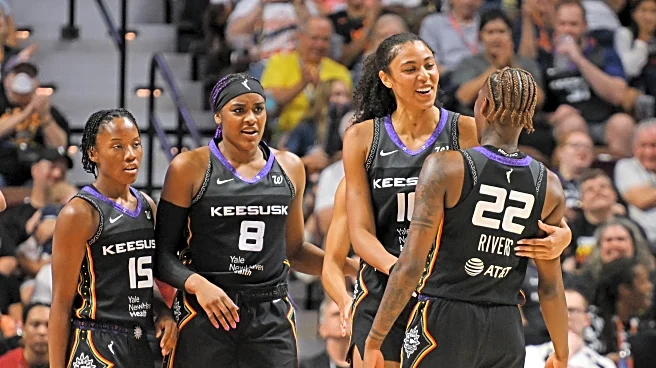On the court, they aren’t going anywhere. But off of it, the Connecticut Sun have been involved in a somewhat messy and convoluted situation regarding their impending change of ownership and relocation.
The uncertainty doesn’t help the 6-27 team to improve, build chemistry or find stability, as young players don’t know what city they’ll end up playing in after next season.
In July, Steve Pagliuca of Bain Capital made an offer of $325 million to buy the Sun, with a clear indication that the team was going to move to Boston; the offer was accepted by the Mohegan Tribe, who own the franchise. The league stepped in though, preventing approval of the move and allowing for the expiration of the exclusivity window, which opened the door for new offers.
Swish Appeal asked Ian Thomsen, a sports journalist from Boston, about the chances of the Sun still moving to Massachusetts:
It seems murky. Why wouldn’t the league want a team in Boston for a record price with an owner of NBA championship experience? There’s a long history of success of women’s basketball in New England, college and high schools. The market is strong and underserved. But these things are rarely straightforward and there probably are issues that go deeper than what we read.
Pagliuca, along with the Grousbeck family, bought the Boston Celtics for $360 million back in 2002. Last week, the sale of the team was approved unanimously by the NBA, with the Celtics valued at $6.1 billion—the highest valuation in the history of US pro sports. Taking into account inflation and investments, that is an incredible profit! And, more importantly for fans, Pagliuca worked behind the scenes to reinstate the organization’s winning culture, which had faded by the turn of the 20th century. He did it with a particular focus on the fan experience and the city. During a talk with Bloomberg Pagliuca said that his goal was to make the franchise “an asset to the community” by establishing a foundation that would benefit the Boston community.
Still, those were the Celtics, an NBA legacy franchise with a strong, pre-existing brand. A newly-moved WNBA franchise would have to start from the ground up. The main fear regarding the move is that the franchise would get lost in the shuffle of other pro sports teams in one of the biggest media markets in the US. When asked about this, Thomsen offered an alternative perspective, noting:
My view is that the WNBA needs a team in Boston more than Boston needs a women’s basketball team. Passing on this opportunity would be regrettable. The new PWHL team in Boston has done very well. I would anticipate even better support for a WNBA team in an NBA building offering cheaper ticket prices than the Celtics. I view it as a no-brainer.
Apparently, the WNBA doesn’t view it like that, as Commissioner Cathy Engelbert seems more interested in having a team back in Houston. Granted, reliving the glory days of the dynastic Houston Comets would be nice. But, is nostalgia worth building something big in Boston? Furthermore, the Houston Rockets’ owner Tilman Fertitta, who has led Houston’s bid for a franchise, may not be the man the WNBA needs.









